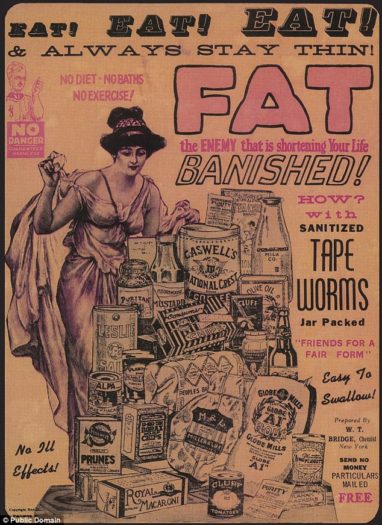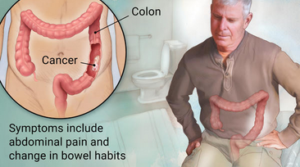 What is a Nutrition food value system? It is a system that may add increased energy, a great immune system, increased vitality, and may add many healthy years to your life.
What is a Nutrition food value system? It is a system that may add increased energy, a great immune system, increased vitality, and may add many healthy years to your life.
For many years I have been working to develop a nutrition food value rating system. I recognized that a person’s energy, health, and longevity are related to their bioelectric body cell system, health, energy, immune system, and longevity. A nutrition value rating system is a valuable tool that uses nutritional, electromagnetic, ionic/cationic, and 80/20 gut bacteria to analyze what foods a person can eat to balance the 80/20 gut bacteria ratio in your small intestine. Continue reading

 As better and better ways of curing cancer are being used, more and more information needs to be printed to safeguard the wonderful life after a person has been cured of cancer. Machines such as the CellSonic VIPP pressure pulse machine and other newer methods of successful treatment bring to our attention that a follow-up cancer cure program is very important.
As better and better ways of curing cancer are being used, more and more information needs to be printed to safeguard the wonderful life after a person has been cured of cancer. Machines such as the CellSonic VIPP pressure pulse machine and other newer methods of successful treatment bring to our attention that a follow-up cancer cure program is very important.

 Fermented foods are prepared refrigerated foods using ingredients that produce live good bacteria to balance the 80 (good/20 (bad) bacteria ratio in your small intestine. They provide a multitude of good benefits including vitamins, minerals, antioxidants, increase antibody levels, and help the good bacteria with a great bioelectric electromagnetic balance in your gut. They boost your immune system, create great bacteria, and give your gut several different bacteria to fight the bad guys. Some of these are lactobacillus acidophilus, lactobacillus bacilli, lactobacillus casei, and Saccharomyces boulardii. There are multitudes of other good bacteria.
Fermented foods are prepared refrigerated foods using ingredients that produce live good bacteria to balance the 80 (good/20 (bad) bacteria ratio in your small intestine. They provide a multitude of good benefits including vitamins, minerals, antioxidants, increase antibody levels, and help the good bacteria with a great bioelectric electromagnetic balance in your gut. They boost your immune system, create great bacteria, and give your gut several different bacteria to fight the bad guys. Some of these are lactobacillus acidophilus, lactobacillus bacilli, lactobacillus casei, and Saccharomyces boulardii. There are multitudes of other good bacteria.  Sorry vegans and veggie-burger lovers, you’re not going to like this. I believe hamburgers are the perfect food. I mean hamburgers from REAL, red meat from grass-grazed cattle raised sustainably.
Sorry vegans and veggie-burger lovers, you’re not going to like this. I believe hamburgers are the perfect food. I mean hamburgers from REAL, red meat from grass-grazed cattle raised sustainably.


 How can a person be so lucky as to wake up in the long days of June with the sparrows singing in the open bedroom window? God has given us these long days to enjoy the wonderful world around us that we live in. Everything around us is vibrant, and with beautiful flowers, bushes, and trees. There is a sparrow bush next to the house behind to our bedroom window with about 20 families of sparrows that are making the wonderful sounds we hear when we wake up.
How can a person be so lucky as to wake up in the long days of June with the sparrows singing in the open bedroom window? God has given us these long days to enjoy the wonderful world around us that we live in. Everything around us is vibrant, and with beautiful flowers, bushes, and trees. There is a sparrow bush next to the house behind to our bedroom window with about 20 families of sparrows that are making the wonderful sounds we hear when we wake up. fee has been linked to a reduced risk of all kinds of ailments, including Parkinson’s disease, melanoma, prostate cancer, even suicide.
fee has been linked to a reduced risk of all kinds of ailments, including Parkinson’s disease, melanoma, prostate cancer, even suicide. 90 percent of all people in the U.S. have little knowledge of food nutritional values and the many factors in buying great foods that increases their health and well-being. With the educational system these days being very tardy on teaching nutrition ratings and food values, there is a void in much of the formal information needed to buy valuable nutritious food that contains necessary vitamins, minerals, amino acids, and enzymes needed to keep a healthy body. Also, many people and families buy foods that they read about, what their parents bought or food ideas that their friends suggest in buying their foods.
90 percent of all people in the U.S. have little knowledge of food nutritional values and the many factors in buying great foods that increases their health and well-being. With the educational system these days being very tardy on teaching nutrition ratings and food values, there is a void in much of the formal information needed to buy valuable nutritious food that contains necessary vitamins, minerals, amino acids, and enzymes needed to keep a healthy body. Also, many people and families buy foods that they read about, what their parents bought or food ideas that their friends suggest in buying their foods.  It’s been said “We are what we eat,” or “garbage in garbage out.” Less catchy advice might be “Eat an anti-inflammatory diet, rather than a pro-inflammatory one.” It could make the difference in the likelihood of developing a malignancy of the large bowel. Not many people realize that if you take away skin cancers, colon cancer is the third most common malignancy in North America.
It’s been said “We are what we eat,” or “garbage in garbage out.” Less catchy advice might be “Eat an anti-inflammatory diet, rather than a pro-inflammatory one.” It could make the difference in the likelihood of developing a malignancy of the large bowel. Not many people realize that if you take away skin cancers, colon cancer is the third most common malignancy in North America.
